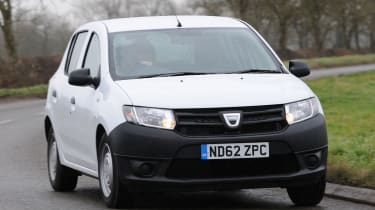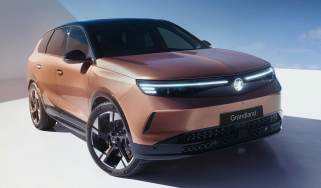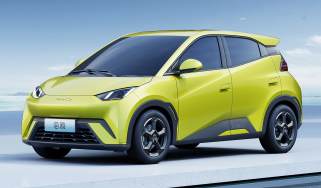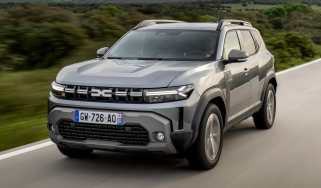Dacia Sandero 1.2 Access
Does the Dacia Sandero supermini appeal beyond its headline-grabbing price tag?
The entry-level Sandero Access is the weakest model in the line-up. There’s no denying that it’s practical and cheap to buy, but it has been built down to the lowest possible price. It also suffers from an outdated driving experience, as well as an old and dirty engine.
Budget brand Dacia has already grabbed the headlines with its value-for-money pricing, but its Sandero supermini really makes a statement. Priced at £5,995, the entry-level version of this no-frills hatchback is Britain’s cheapest new car. So what do you get for your money?
Well, while it’s bigger and more imposing than its city car rivals here, the Dacia’s bargain-basement roots are clear to see.
With its unpainted bumpers, large black plastic grille and uncovered steel wheels, the Sandero has a utilitarian look and feel, while the only paint option is solid white.
This back-to-basics approach continues inside, where the Dacia feels like a supermini from 20 years ago. Hard and scratchy plastics are used throughout, the dashboard design is dated and some of the switchgear feels a little fragile.
There’s also very little standard kit, even compared to the sparsely equipped competition. You get a rev counter and 12-volt power supply, but that’s about it.
More reviews
Car group tests
In-depth reviews
Long-term tests
Road tests
Useful additions such as electric windows and central locking aren’t even available as options. And you’ll have to go without a stereo – although the car does come pre-wired to accept an aftermarket unit, such as the brash-looking Kenwood CD player fitted to our test model.
Dacia hasn’t scrimped on safety equipment, though. Even this entry-level version gets electronic stability control as standard, plus there are driver, passenger and side airbags.
It remains to be seen whether these measures will allow the Sandero to improve on the disappointing three-star Euro NCAP rating recorded by the company’s larger Duster.
Getting comfortable behind the wheel can be tricky as the steering column is fixed and there’s no height adjustment on the driver’s seat. Some of our testers also complained that the base was tilted too far forward.
At least the soft seats are supportive, and there’s decent head and legroom for driver and passenger. That’s more than can be said for those in the back. While the Dacia is longer and wider than its rivals, it doesn’t provide any more space in the rear, with knee room in particular being quite tight. There’s a shortage of useful storage as well, with most of the glovebox, for example, taken up with the car’s electrical fuses.
On the plus side, the Sandero has three rear seatbelts, while its five-door layout makes access easy. Practicality is further boosted by the inclusion of a 60:40 split-fold rear bench, while the 320-litre boot is 70 litres bigger than the Skoda’s.
The Dacia also has an advantage under the bonnet, because its 74bhp 1.2-litre engine is the biggest and most powerful on test. As a result, it led the way at the track, posting the fastest in-gear times – the sprint from 50 to 70mph in fifth gear took 16.6 seconds, which is a full four seconds faster than the Kia.
Yet this advantage isn’t translated on to the road. Unlike the smooth-spinning engines in the Alto and Citigo, the Dacia’s four-cylinder is strained and harsh at high revs, so you won’t want to push the car too hard. And while the steering is power-assisted, it feels heavy around town and lifeless on the open road.
There’s also pronounced roll through corners and only average grip from the skinny tyres. On the other hand, the Dacia’s soft suspension set-up means a comfortable ride over bumpy surfaces, with only deep potholes upsetting the car’s composure.
Yet many buyers will put up with these flaws for the huge financial savings on offer. Not only is the Sandero a whopping £1,725 less than the Skoda, it also returned an excellent 48mpg in our hands and benefits from decent residuals.
There’s no getting away from the fact the car has been built down to a very low price. Most buyers will, and should, spend another £600 on the Ambience model with its modicum of kit. The question is whether what little is on offer is enough to recommend the Dacia ahead of some very talented rivals?



